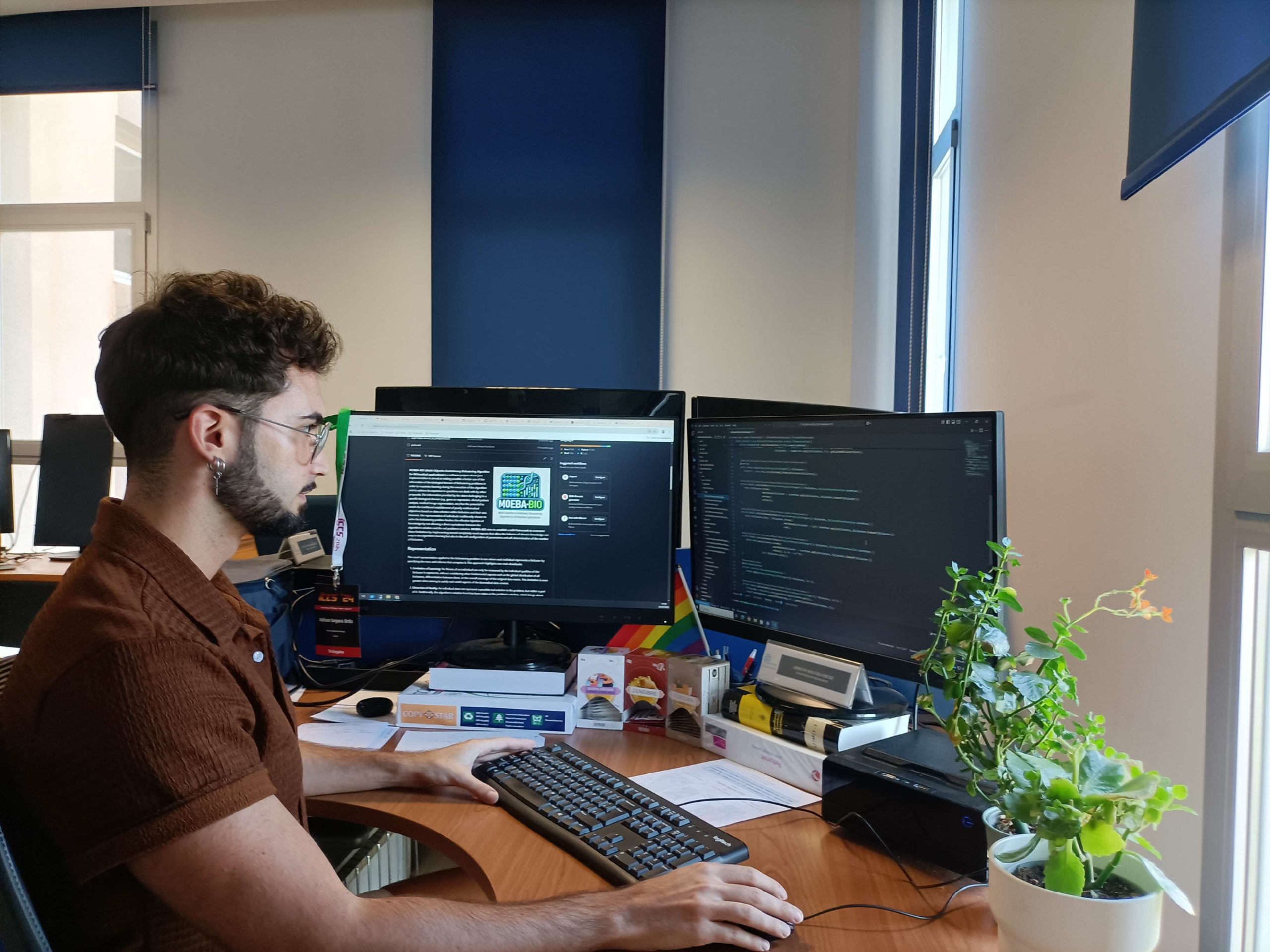A researcher from ITIS UMA develops a tool to uncover hidden structures in biomedical data
The University of Málaga, in collaboration with the University of Lille (France), has developed an innovative open-source tool called MOEBA-BIO, designed to analyze large volumes of biomedical data and uncover patterns that often go unnoticed. This advancement promises to open new possibilities in personalized medicine and enhance the understanding of genetic data.
The work was recently published in the journal Computer Methods and Programs in Biomedicine and was led by Adrián Segura Ortiz, a researcher from the Khaos group and a PhD candidate in Computer Technologies, under the supervision of José Manuel García Nieto from the Department of Languages and Computer Science. The research also involved members of the ORKAD group at the University of Lille, led by Laetitia Jourdan, and biclustering expert Adán José García.
MOEBA-BIO is based on the biclustering technique, which allows for the identification of coherent groups of genes and experimental conditions. This methodology is especially useful for studying gene co-expression—how certain genes are activated together under specific conditions. Its application is already extending to clinical data, enabling the identification of patient profiles with similar characteristics, a valuable tool for advancing personalized treatments.
The software has been designed with a flexible and scalable architecture. It integrates a novel encoding approach that gives the algorithm a global perspective of the problem, facilitating the optimization of each gene group, the identification of the appropriate number of clusters, and the definition of their internal relationships. Additionally, it includes a self-configuration system that automatically adjusts algorithm parameters based on the characteristics of the dataset.
This development is part of Segura Ortiz’s doctoral thesis, and the software is now openly available for use by the scientific community. The research team is currently seeking collaboration with other groups and professionals in the biomedical field interested in applying the tool to new datasets, thereby expanding the reach and potential of MOEBA-BIO.
More information: https://www.umadivulga.uma.es/noticias/un-investigador-de-la-uma-desarrolla-una-herramienta-para-descubrir-estructuras-ocultas-en-datos-biomedicos/

